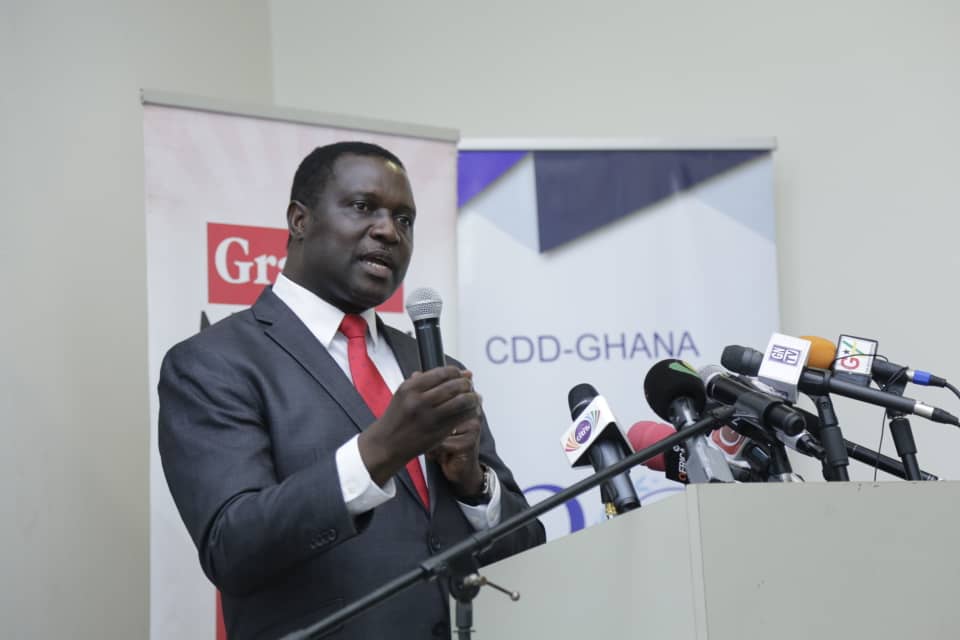
‘Adopt flexible ways of admitting students’
The Deputy Minister of Education responsible for secondary education, Dr Yaw Osei Adutwum, has urged universities in the country to adopt flexible ways of admitting students.
He said the placement policies of universities should not focus only on the subjects or programmes they studied in their previous level of education, but should include the abilities and potential they exhibited.
Advertisement
The deputy minister said this at a roundtable organised by the Faculty of Arts, University of Cape Coast (UCC).
The discussions, which are in the form of a colloquium or symposium, are organised at least once a semester by the faculty where policy makers, academics and professionals are invited to share their views on topical issues.
Contributing to the discussion which was held on the theme: “The University in the 21st Century: The Role of the Humanities in Ghana”, Dr Adutwum said in some jurisdictions such as the United States of America, a high school leaver with a background in Visual Arts could be allowed to pursue engineering at the university while a graduate in Sociology or Anthropology could easily do Medicine.
Admission process
Dr Adutwum said the flexibility in the admission process in those countries enabled them to tap into the potential of their young citizens for their national development, and wondered the number of Ghanaian students who had been denied the opportunity to pursue programmes of their choice just because of perceived non-alignment of their previous programmes or subjects of study with their desired programmes.
Welcoming the participants to the programme, the Dean of the Faculty of Arts, UCC, Prof. Kwame Osei Kwarteng, described the Faculty of Arts as a vibrant community of academics, staff and students who had over the years built a very rich academic culture through the activities of the faculty.
He said that was in line with the overall goal of the faculty to foster an academic environment that was responsive to changes in the national, global, political, economic, religious and socio-cultural contexts.
“As a faculty, we believe that our scholarship, apart from its intrinsic value of creating and disseminating knowledge, ought to be relevant to human societies by contributing to improve socio-economic and political life,” he said.
Taking his turn to address the participants, the Chief Executive Officer of the Chamber of Bulk Oil Distributors, Mr Senyo Hosi, said “universities must constantly review evolving trends and assess futuristic implications on industry and reposition education to be competent in meeting the requirements of the present future”.
He said the competitive nature of today’s world had no time for unpreparedness, adding that “industry understands that graduates will have to be trained for specific work roles, but it requires preparedness on the part of graduates in respect of values, attitudes and basic skills”.
That, Mr Hosi said, would make graduates conveniently trainable and viable throughout their time in the firm and across various tasks and roles.
He said it was, therefore, unacceptable for university students to be examined using multiple-choice questions which left absolutely no room for critical thinking or creativity.
Research
Stressing the importance of research in national development, the Director of the Directorate of Research, Innovation and Consultancy (DRIC) of UCC, Prof. F. Atoh Armah, observed that research was the bedrock on which knowledge was generated for the advancement of society.
He said in spite of the importance of research in national development, Ghana’s contribution to research activities in the country was 0.4 per cent of GDP, and expressed optimism that the government would increase the figure in order to make more funds available for research.
A lecturer with the Department of Communication Studies of UCC, Dr Wincharles Coker, asked for the pedagogy of students’ training in the country’s universities to be re-examined.
That, he said, was necessary in view of the fact that skills for various jobs were fast becoming stale by the day as a result of technological advancement.
He, therefore, wondered whether it was important for emphasis on students’ training in universities to be placed on skills training or on helping the students develop critical minds to deal with challenges they were likely to face in the job market.
Knowledge development
For his part, a lecturer with the Department of English, UCC, Dr Richmond Ngula, underscored the need for universities to be at the forefront of developing knowledge for national development.
He said countries in the world operated knowledge-based governance systems, and research institutions such as universities were expected to produce that knowledge.



